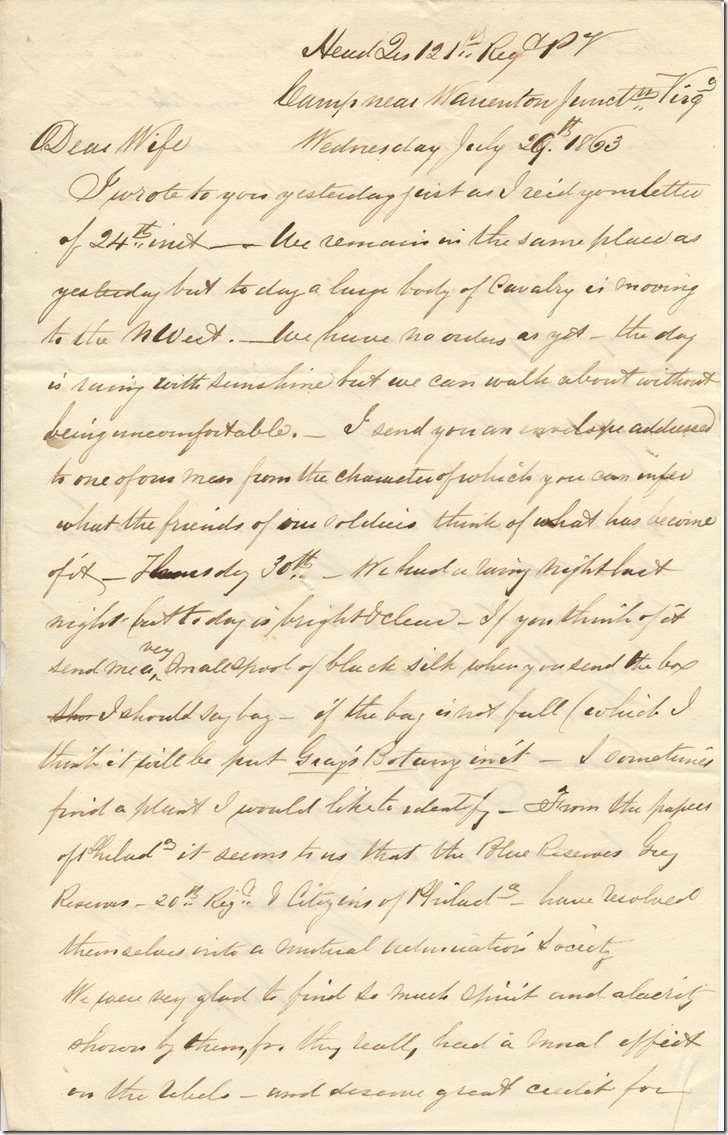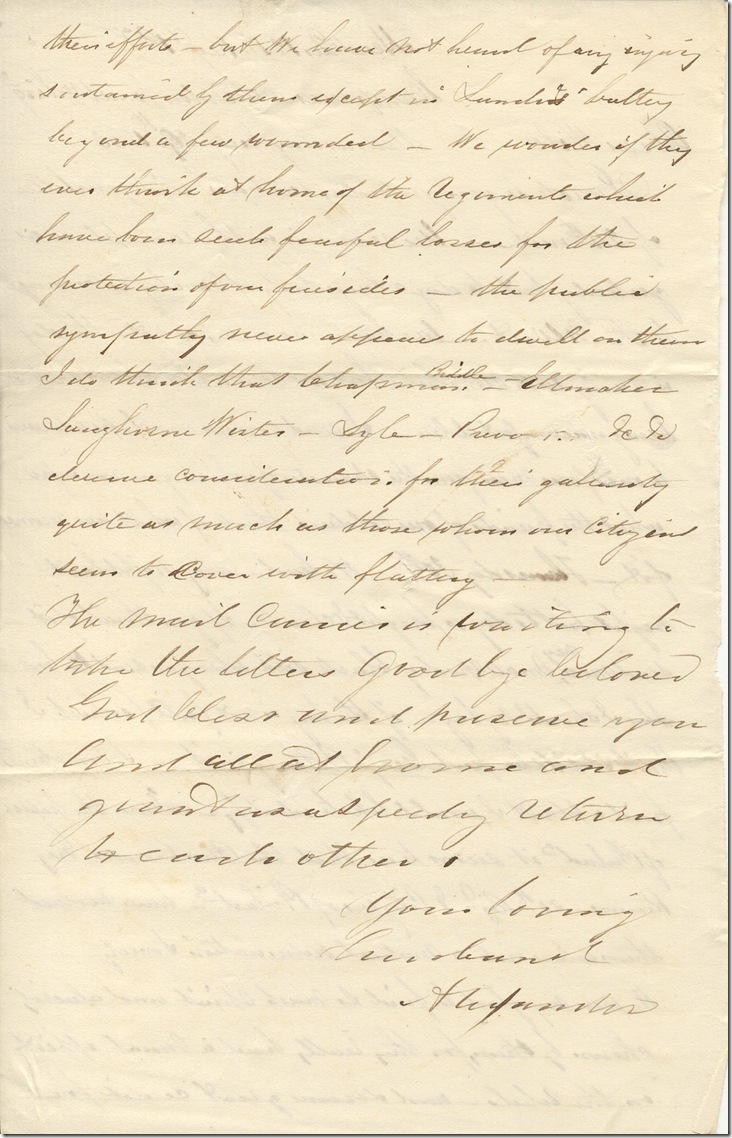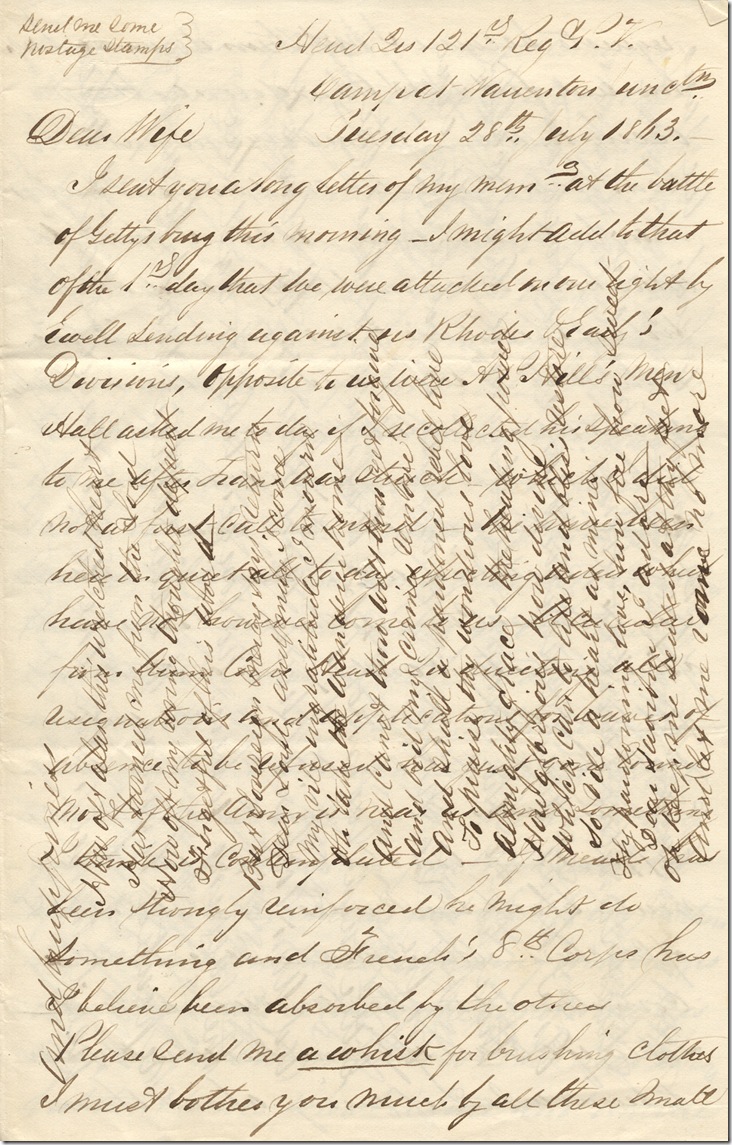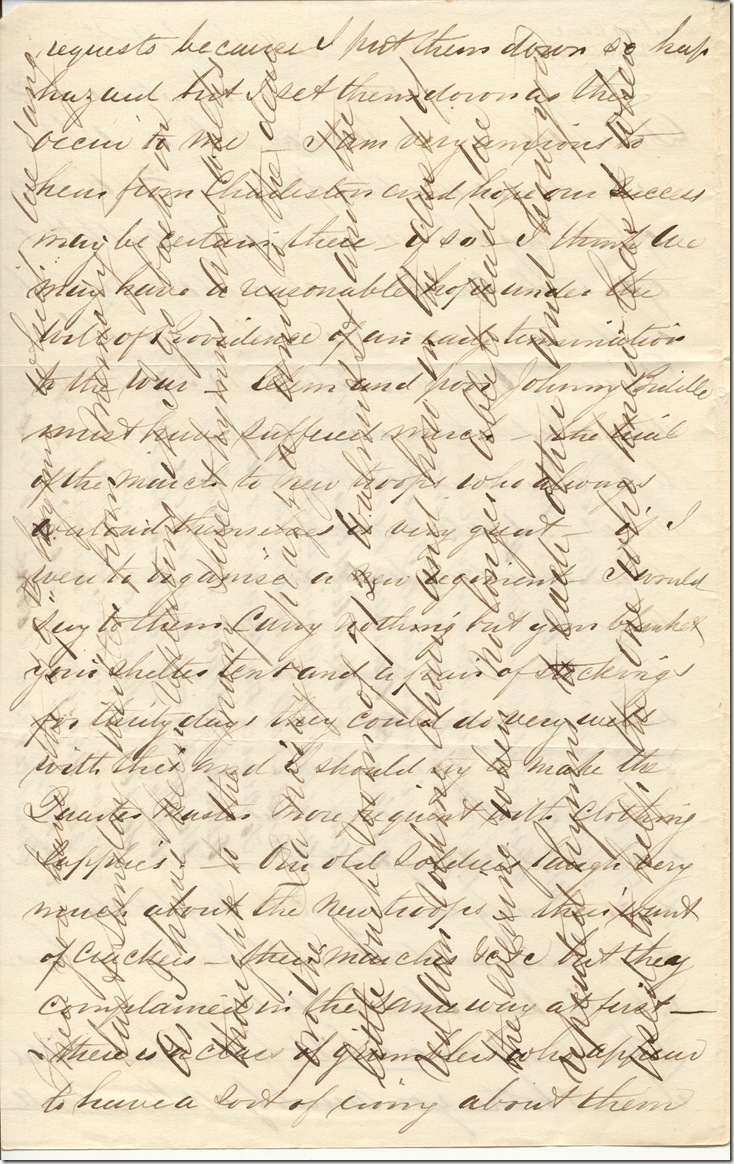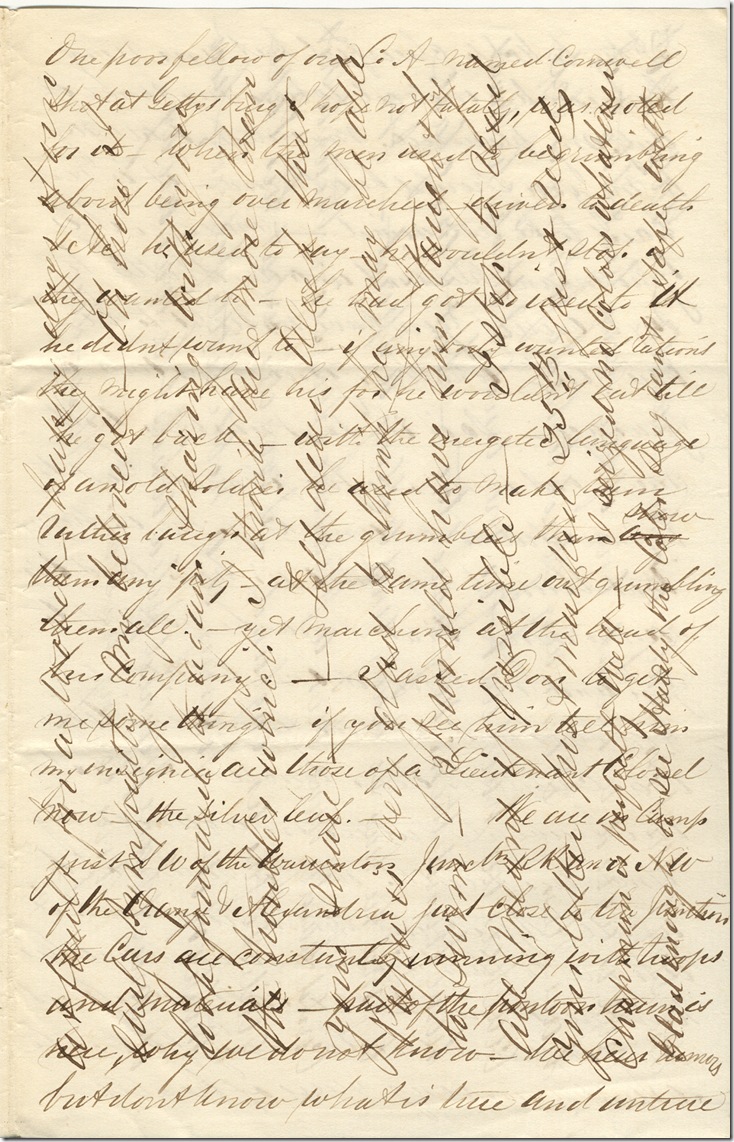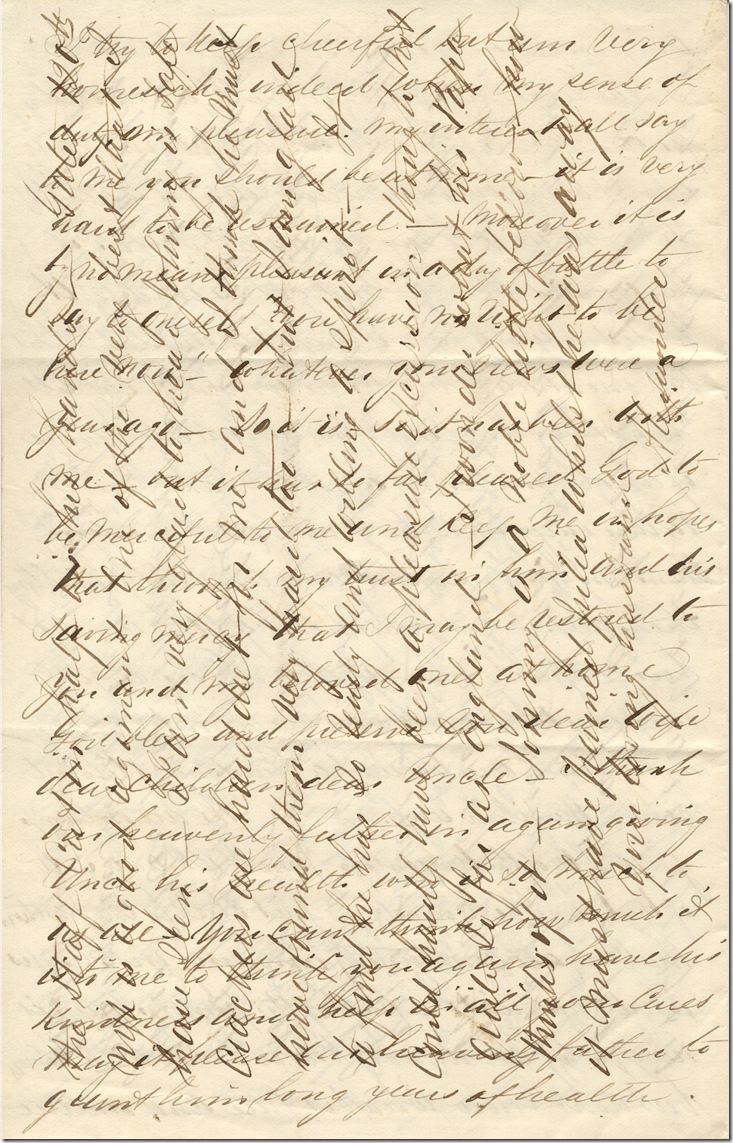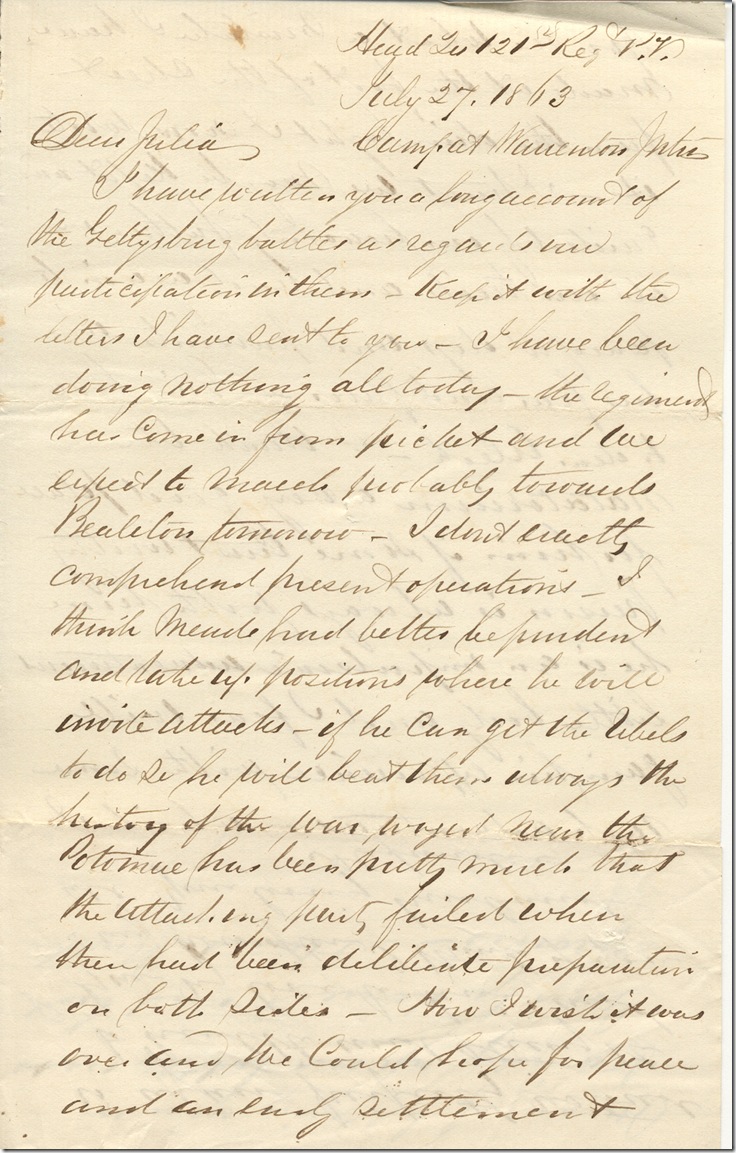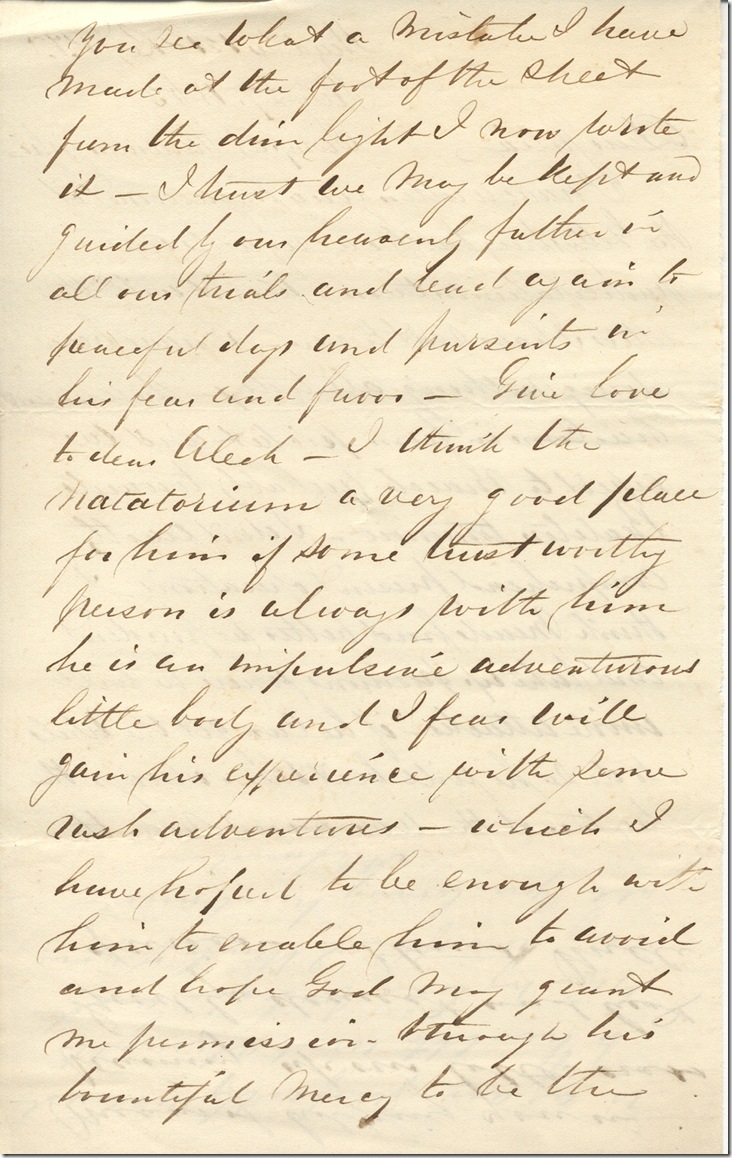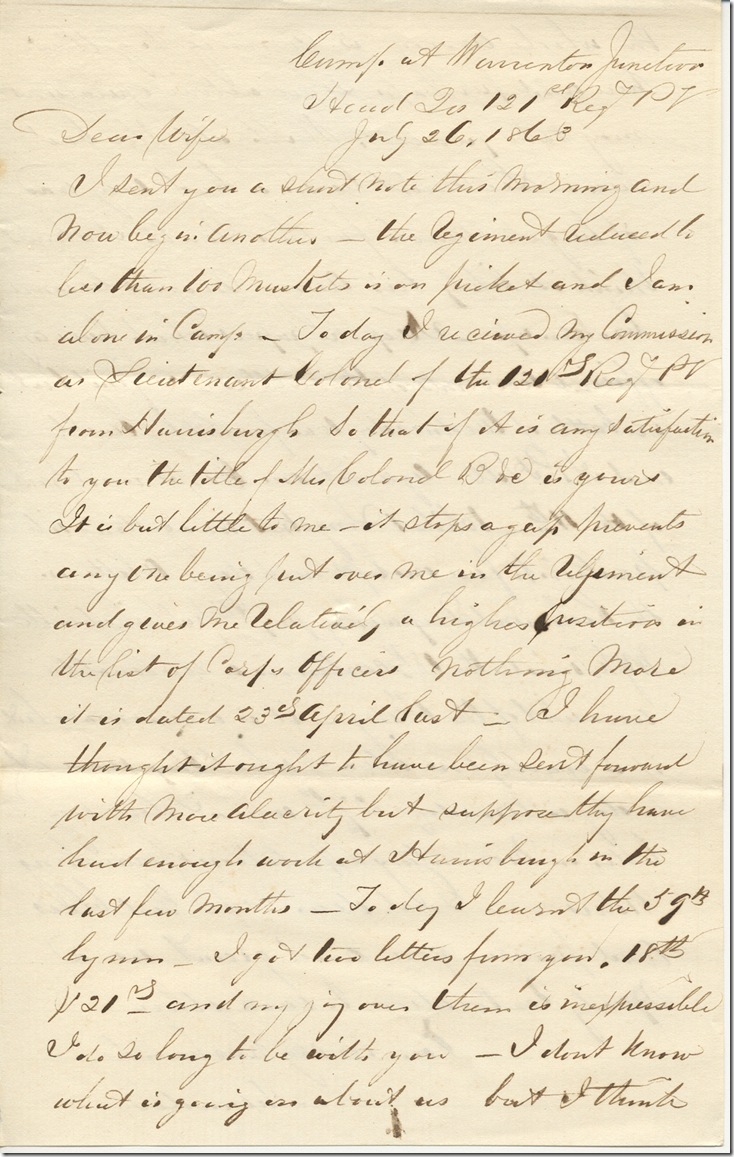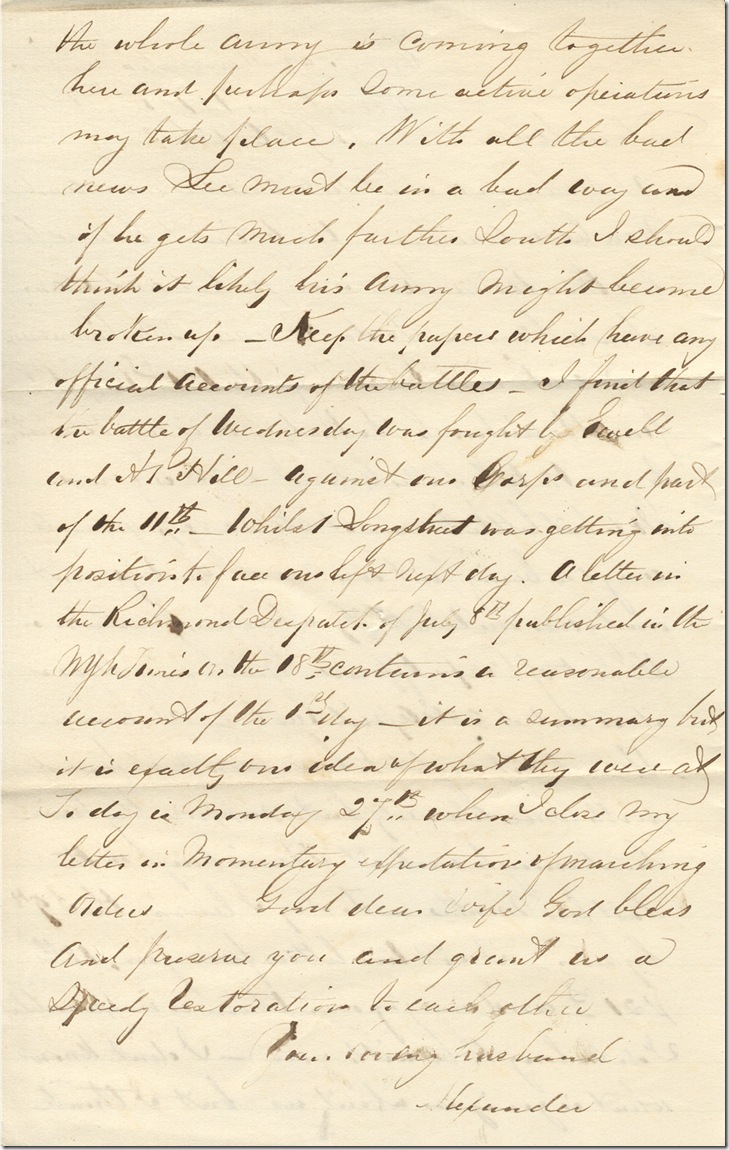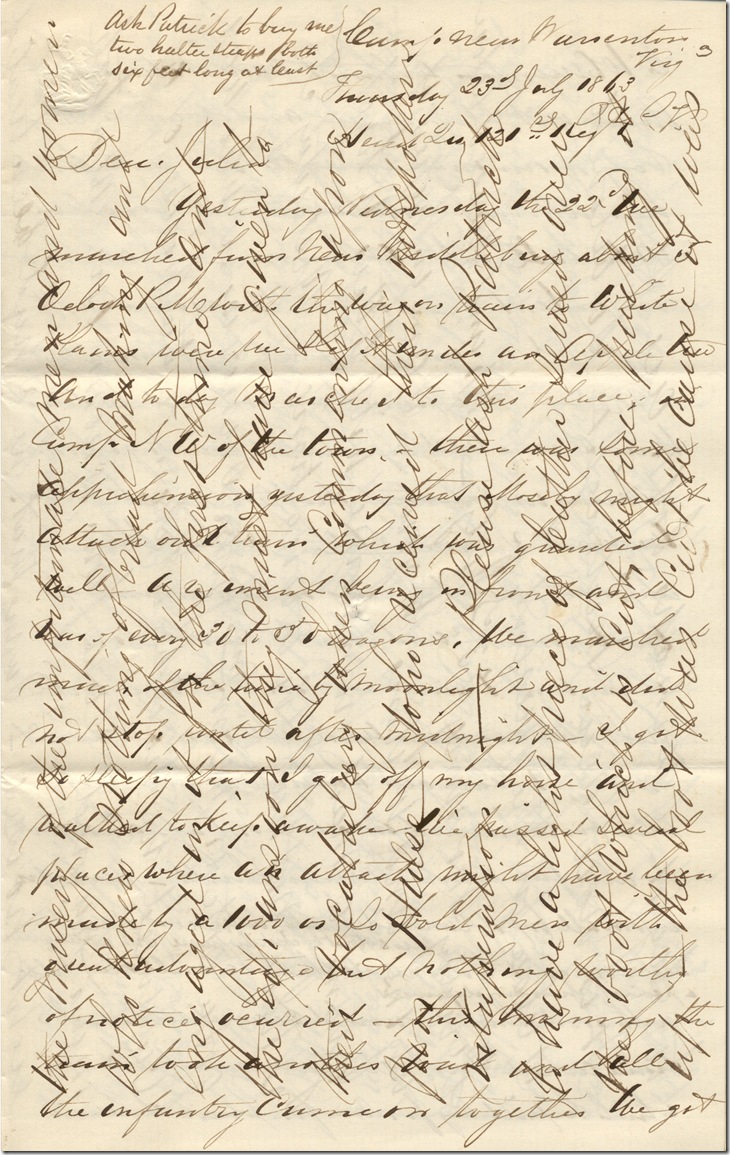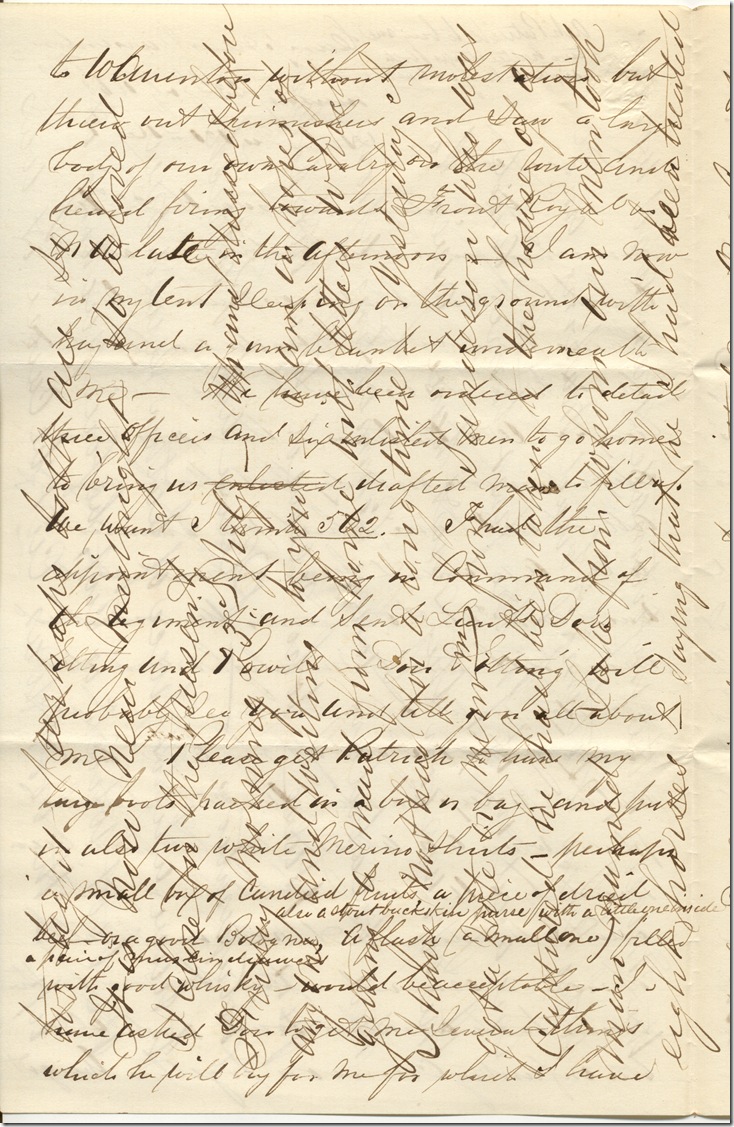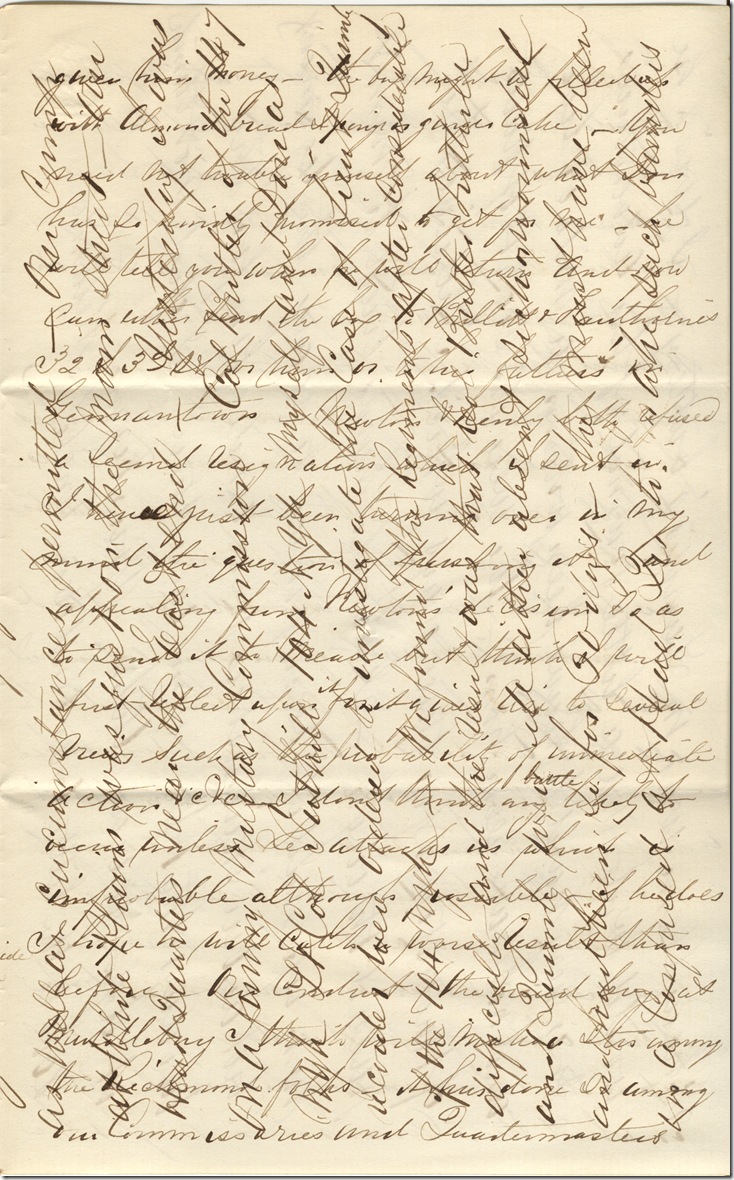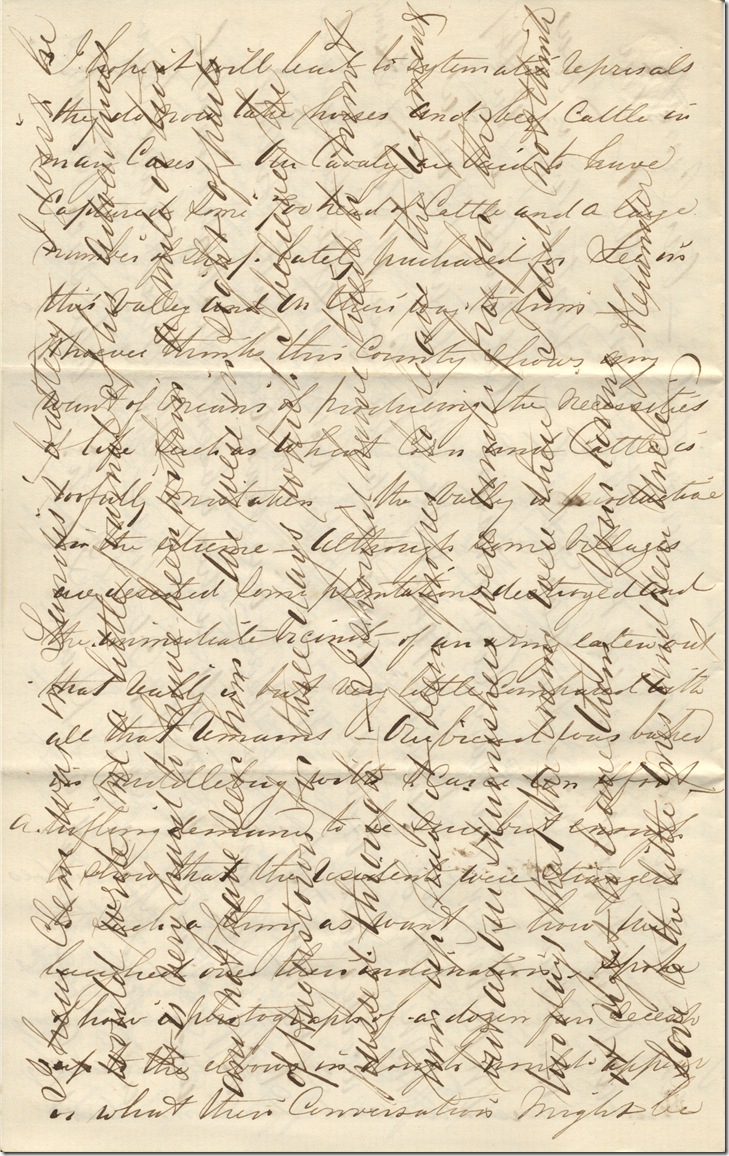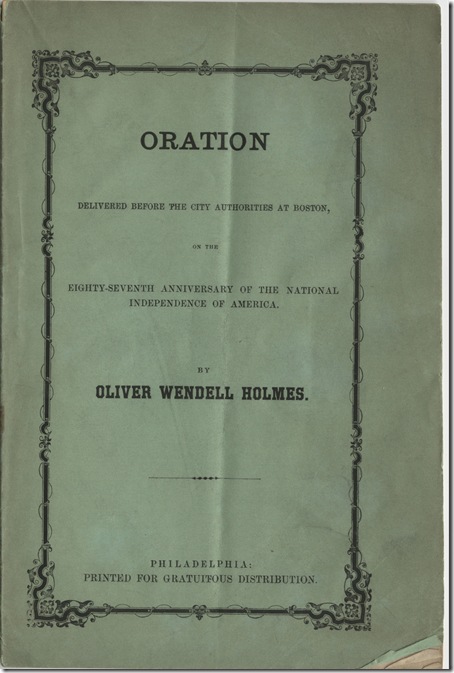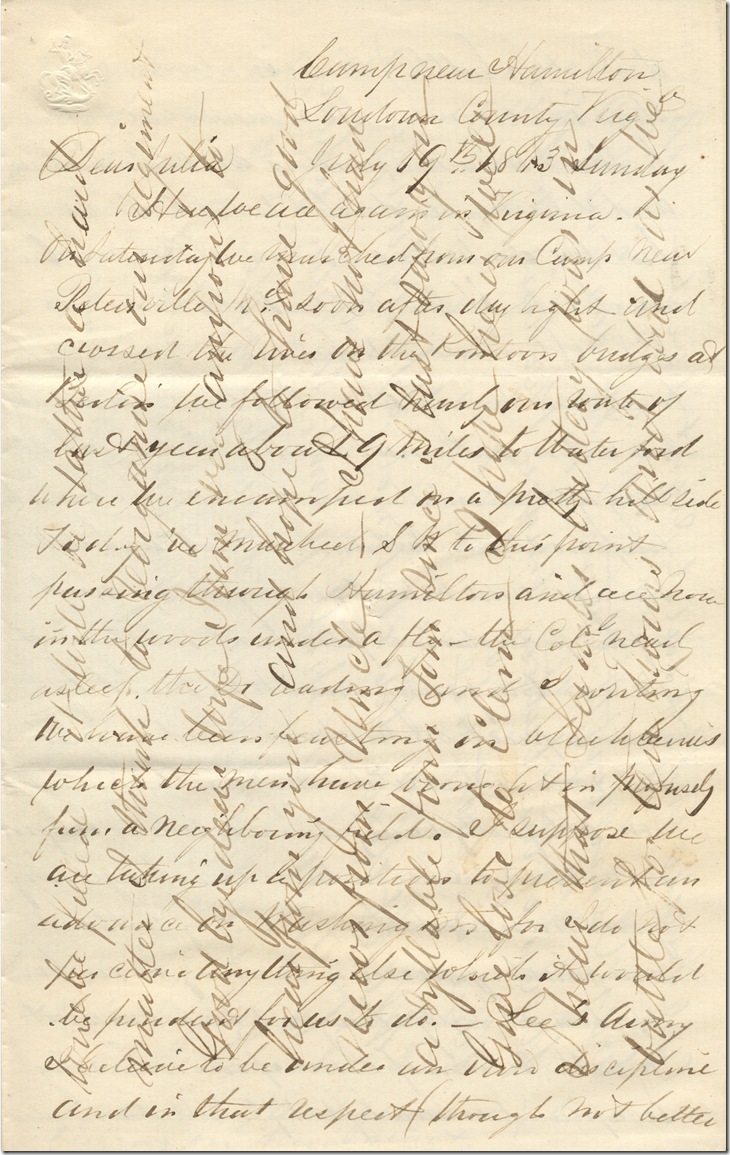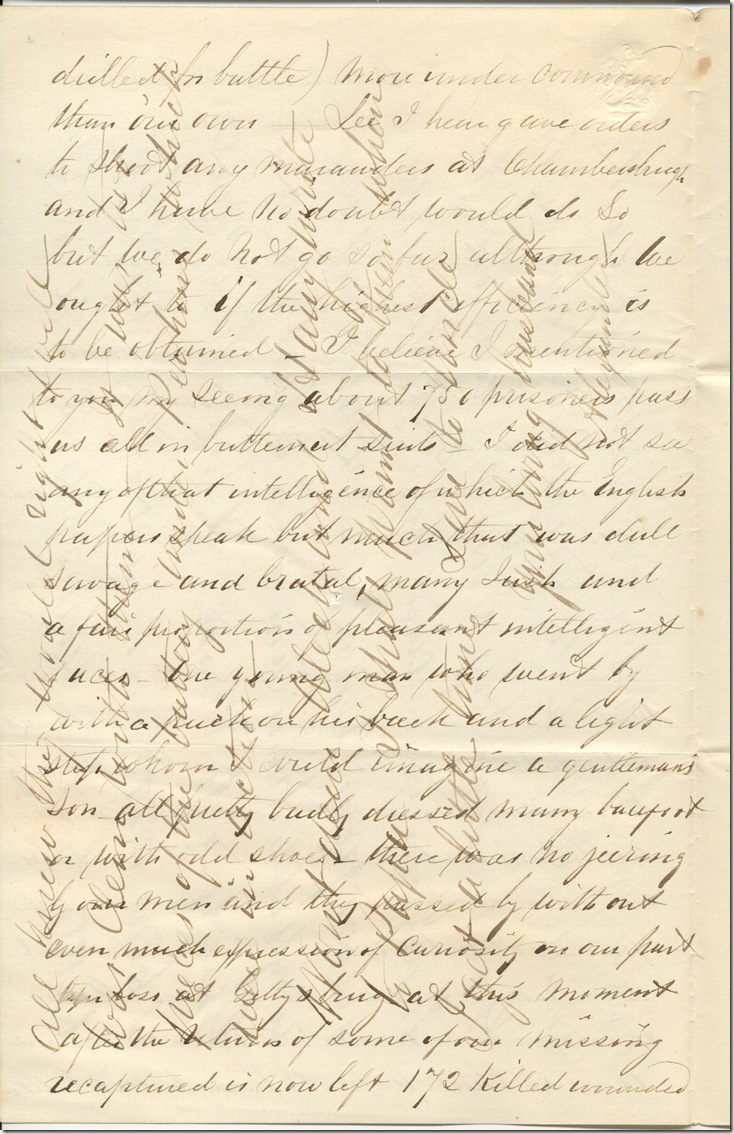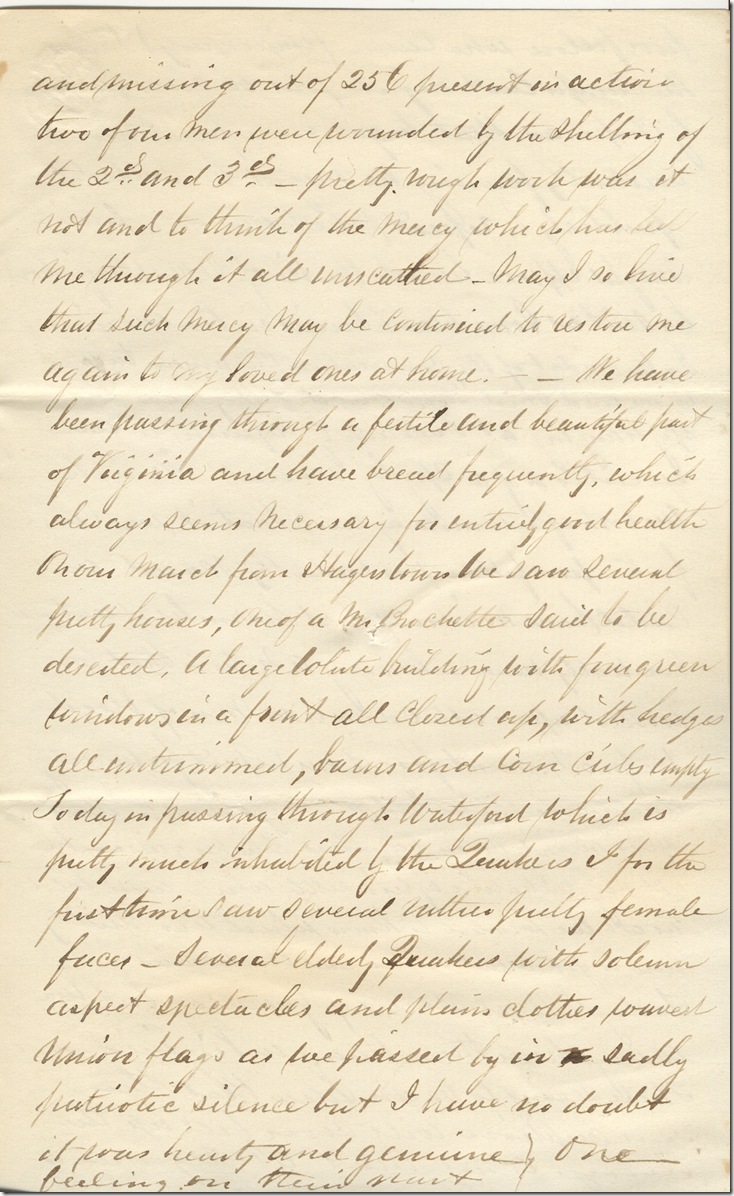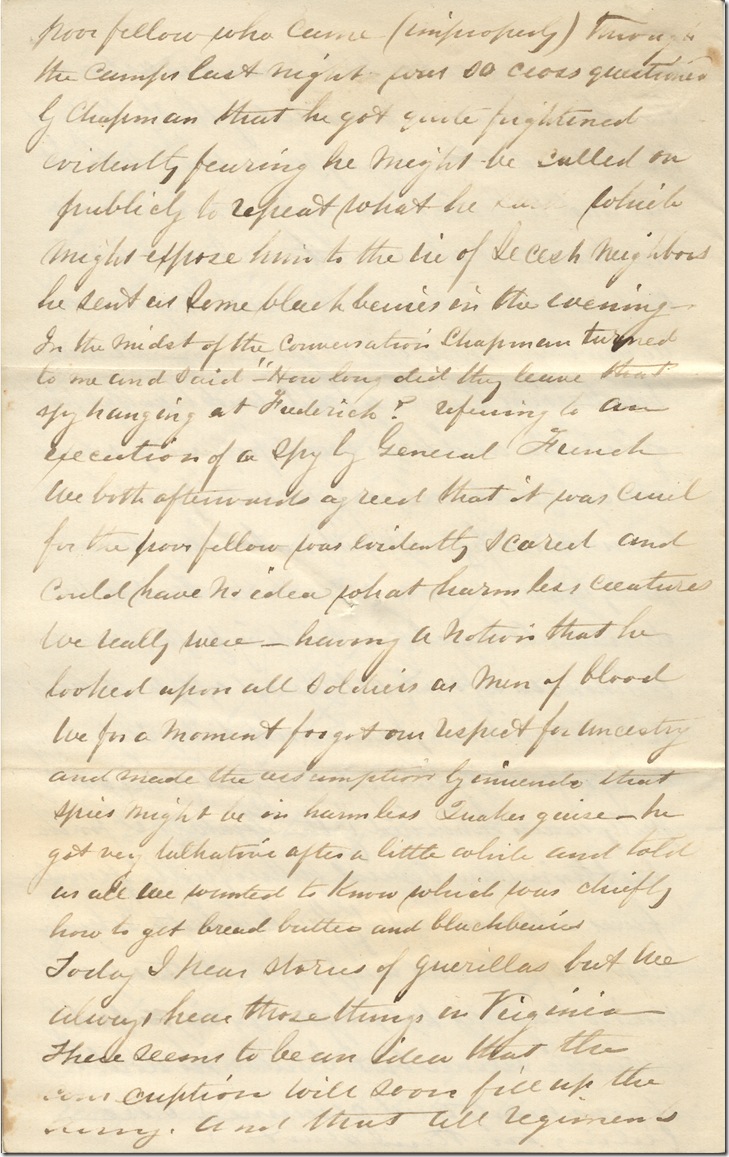Alexander Biddle was a member of the prominent Philadelphia Biddle family and was married to Julia Williams Rush, the granddaughter of Dr. Benjamin Rush. Biddle served with the 121st Pennsylvania Volunteer Infantry, beginning in September 1862. Starting out as a major, he would participate in Fredericksburg and Gettysburg, among other engagements, and would leave the service as a lieutenant colonel. (He was commissioned, but never mustered, as colonel)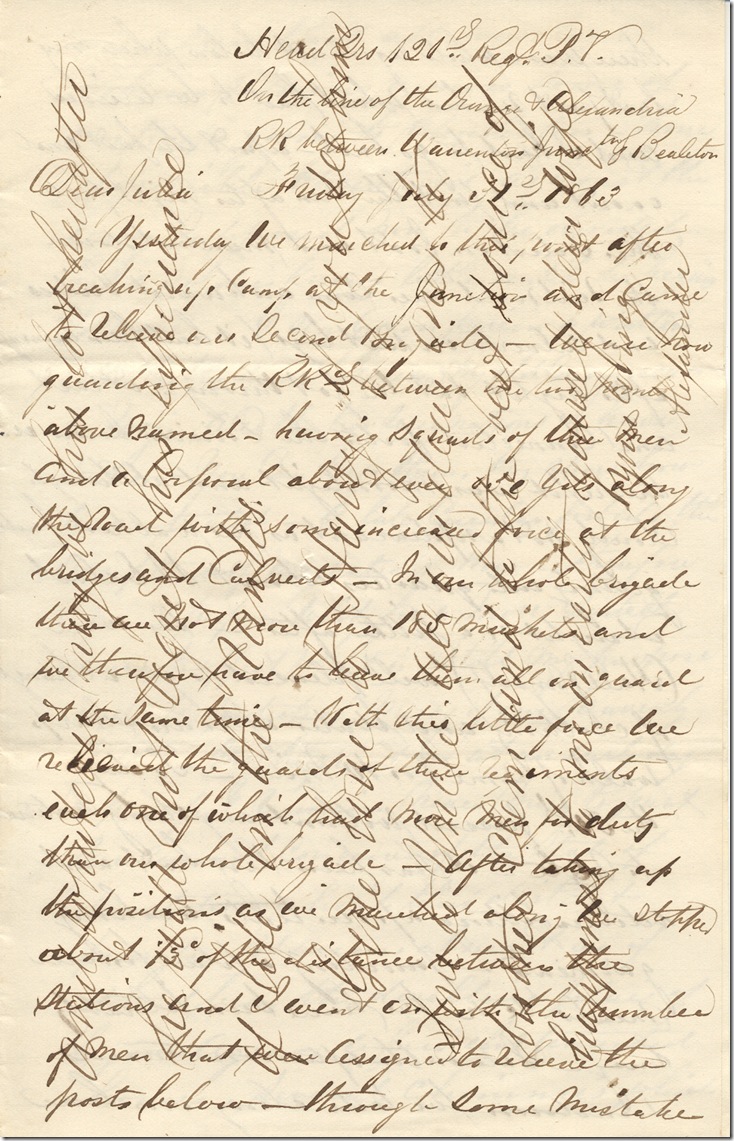
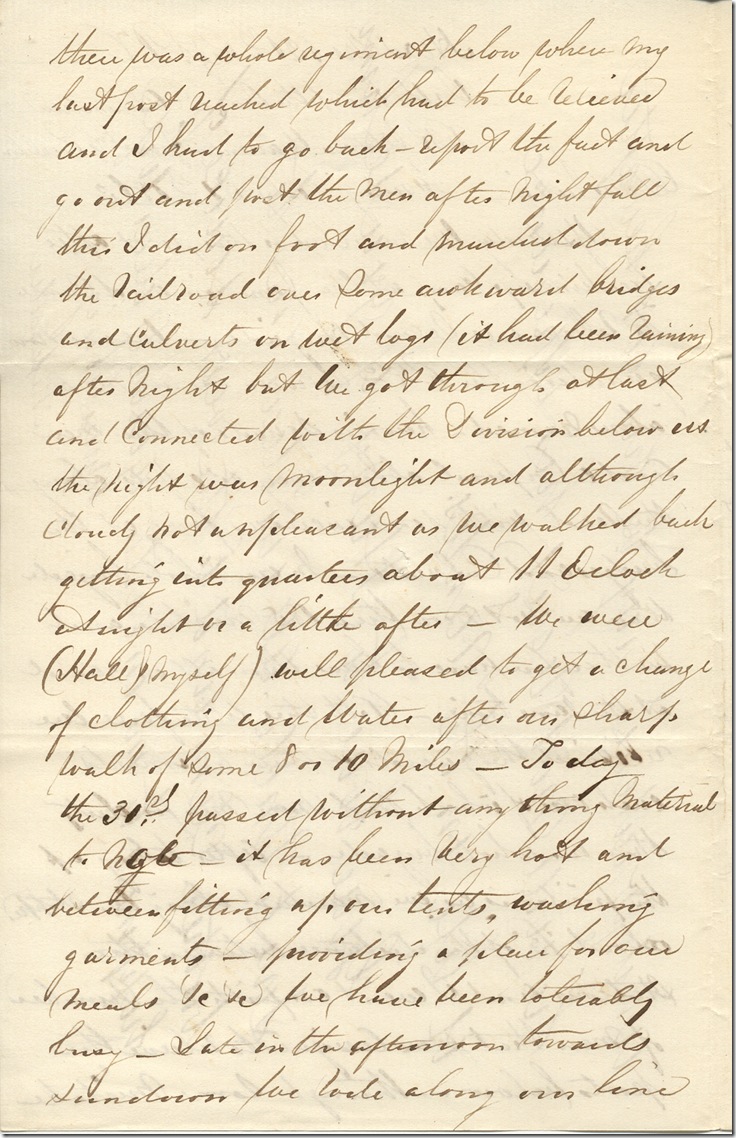
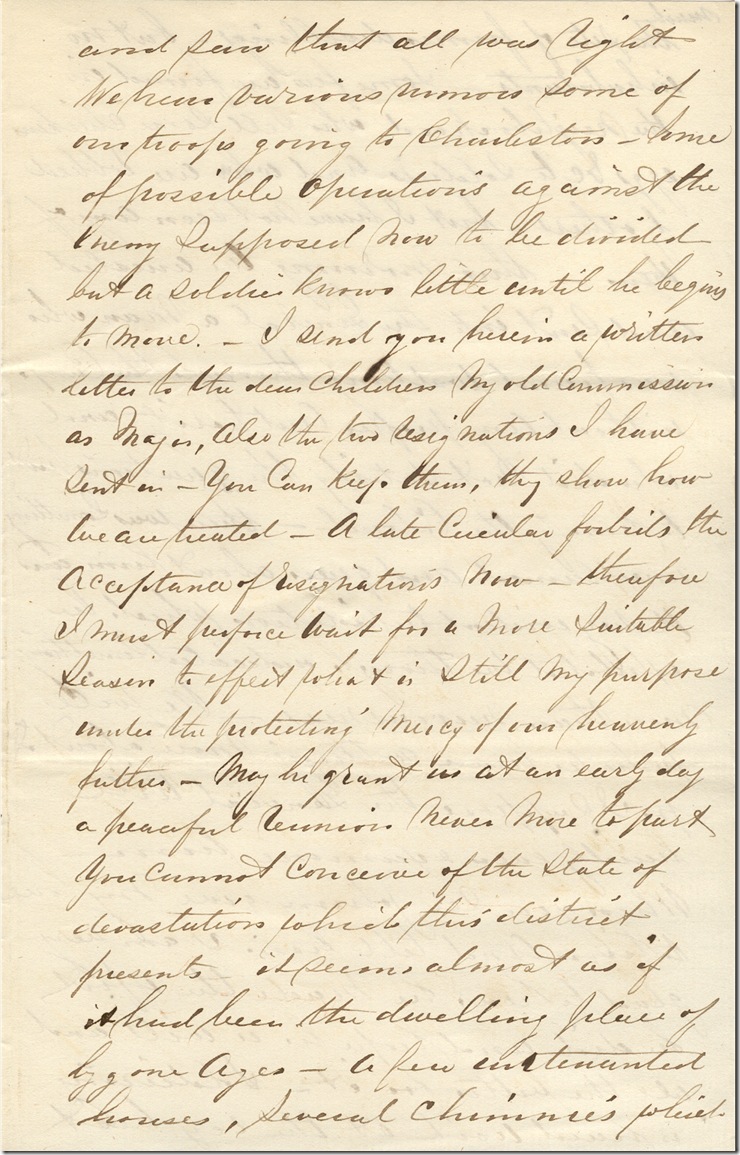
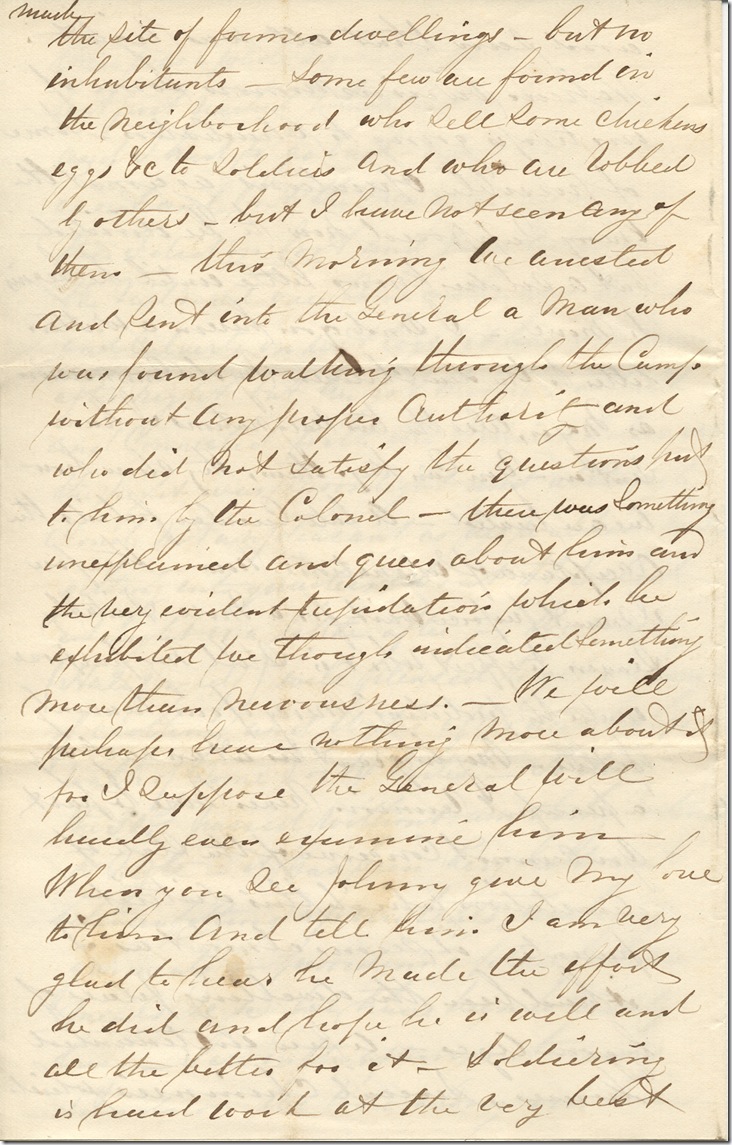
Transcript (excerpt):
Head Qrs 121st Regt P.V.
On the line of the Orange & Alexandria
RR between Warrenton Junctn & Bealeton
Friday July 31st 1863
Dear Julia
Yesterday we marched to this point after breaking Camp at the Junction and Came to relieve our second Brigade – we are now guarding the RRd between the two points above named – having squads of the men and a Corporal about every 150 Yds along the road with some increased force at the bridges and Culverts – In our whole brigade there are not more than 185 muskets and we therefore have to leave them all on guard at the same time – With this little force we relieved the guards of three regiments each one of which had more men for duty than our whole brigade – After taking up the positions as we marched along we stopped about 1/3 of the distance between the stations and I went on with the numbers of men that were Assigned to relieve the posts below – through some mistake there was a whole regiment below where my last post reached which had to be relieved and I had to go back –report the fact and go out and post the men after night fall. this I did on foot and marched down the railroad over some awkward bridges and culverts on wet logs (it had been raining) after night but we got through at last and connected with the Division below us. the night was moonlight and although cloudy not unpleasant as we walked back, getting into quarters about 11 Oclock at night or a little after – we were (Hall & myself) well pleased to get a change of clothing and water after our sharp walk of some 8 or 10 miles–To day the 31st passed without anything material to note –it has been very hot and between fitting up our tents, washing garments –providing a place for our meals &c&c we have been tolerably busy–Late in the afternoon towards sundown we rode along our line and saw that all was right. We hear various rumors some of our troops going to Charleston –some of possible operations against the enemy supposed now to be divided but a soldier knows little until he begins to move…
You cannot conceive of the state of devastation which this district presents – it seems almost as if it had been the dwelling place of bygone ages – a few untenanted houses, several chimnies which mark the site of former dwellings – but no inhabitants – Some few are found in the neighborhood who sell some chickens eggs &c to soldiers and who are robbed by others –but I have not seen any of them…
Citation: Alexander Biddle (1819-1899), autograph letter signed to Julia Williams Rush Biddle. 31 July 1863. Rush IV:30:33
